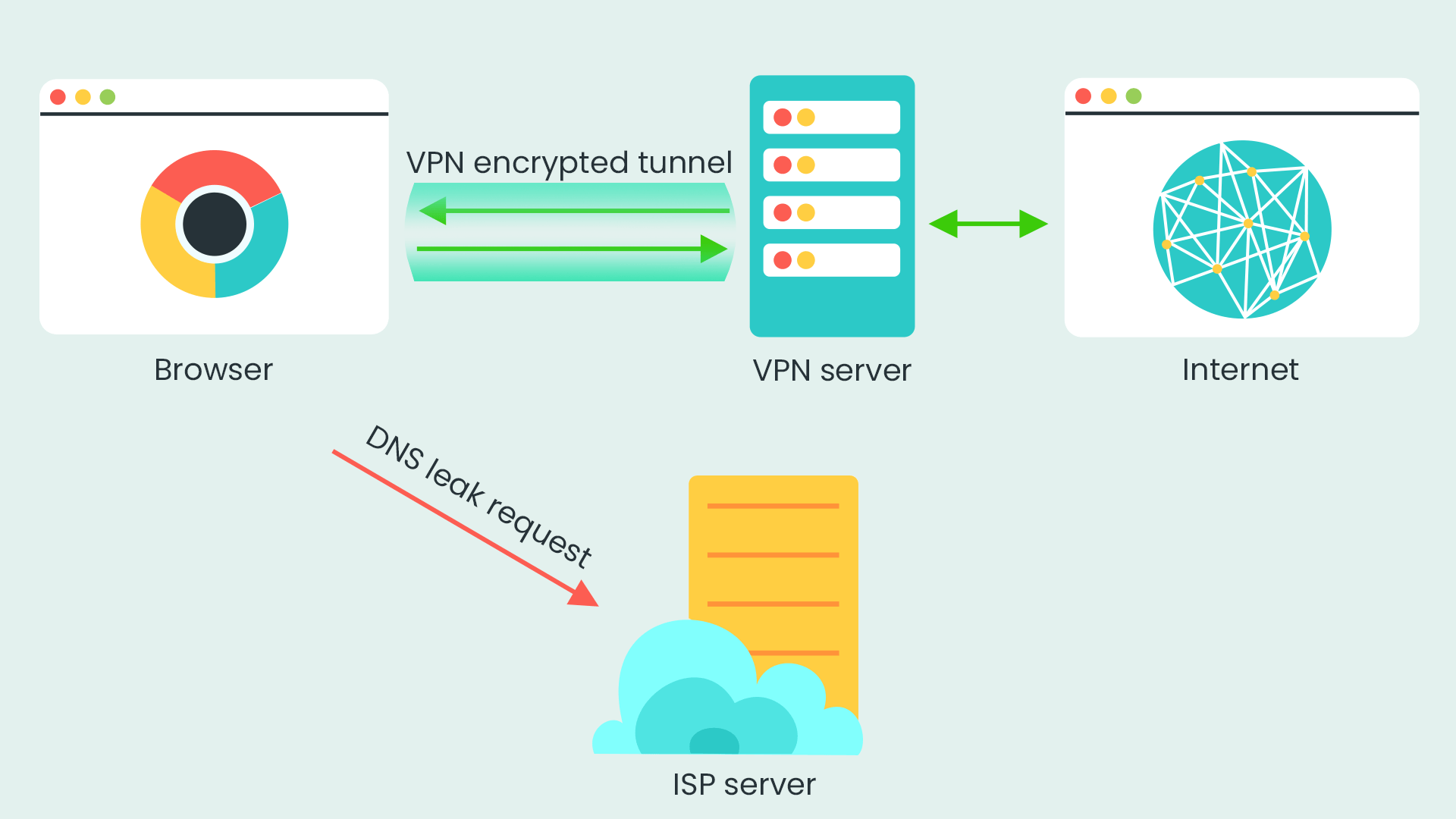What is a DNS leak and how does it work?

What is a DNS?
DNS is short for the Domain Name System, composed of a resolver and domain name server. The domain name server refers to the domain name, and the corresponding IP address of all hosts in the network is saved, and it has the function of converting the domain name.
How does a DNS work?
DNS translates domain names (such as www.xvpn.io) into numeric IP addresses (such as 12.12.12.12). Whenever your computer contacts a server on the Internet, the server translates your web request and returns the resolved IP address to your computer.
Type a URL address into your browser, and your computer goes to a DNS server and requests an IP address. Your device cannot connect to the website you want to visit until the DNS server provides the IP address.
What is a DNS leak?
DNS leaks are also a security flaw. When making a request, your request is sent to your ISP service provider's default DNS servers. During the transmission process, there will be significant security risks.
A DNS leak occurs when your computer or device sends DNS queries to a DNS server that is different from the one you intended to use. DNS leaks can reveal your online activity to third parties, such as your Internet Service Provider (ISP) or other entities that are monitoring your network traffic.
When connected to a VPN, all online traffic is routed through the VPN, and your traffic travels through an encrypted tunnel directly to the VPN provider's DNS servers.
 What is the risk of a DNS leak?
What is the risk of a DNS leak?
Your online traffic may be intercepted by third parties if routed unencrypted. These third parties may be your ISP service provider. They can obtain your behavior information, such as the websites you visit, the information you query, the online services you use, etc. But for most users, security leaks happen without awareness. Therefore, we recommend that you regularly implement security tests to verify that there is no risk of DNS leaks.
How to use a VPN to avoid DNS leaks?
When you connect to X-VPN, you will use the servers provided by X-VPN, and all traffic passing through X-VPN will be transmitted through an encrypted tunnel.
Enter the website's domain name you want to enter in the browser or click the link you are interested in. Then, X-VPN converts the website name into an encrypted code and sends it to its servers through a secure tunnel. You can then visit the website, all requested data and your real location are hidden from your ISP and third parties.
X-VPN provides users with powerful DNS leak protection. When you connect to X-VPN, DNS requests to your ISP are redirected to our servers so that your connection is highly secure and private.
Follow Us on Social Media
Recent Articles
How to Use VPNs for Secure Social Media Management
Jul 29, 2024 | 9 mins to readHow to Set Up a VPN on Windows 10/11?
Aug 14, 2024 | 7 mins to readHow to Use Signal App in Russia: Solve Signal Ban
Aug 12, 2024 | 4 mins to read30 Best FMovies Alternatives in 2024 (Still Working)
Aug 12, 2024 | 14 mins to readAccess anything anywhere anonymously with X-VPN
24/7 one-one live chat support
Ultimate protection for 5 devices
Access to all worldwide contents
8000+ servers at 225 locations
30-DAY MONEY-BACK GUARANTEE

